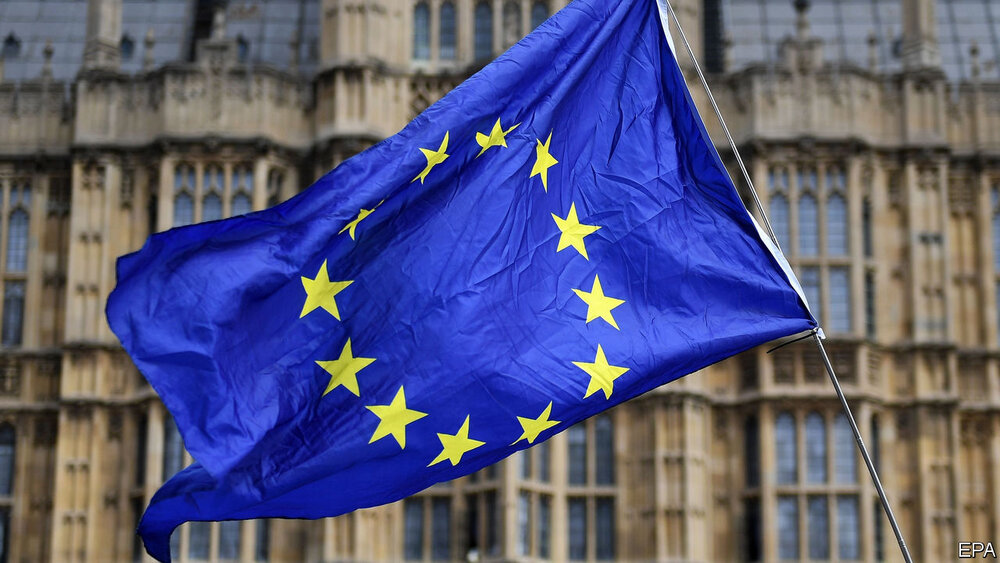European chief diplomats insist on the need to save nuclear deal

European Union foreign policy chief Federica Mogherini and a number of European foreign ministers have said they seek to discuss how to save the 2015 nuclear deal, known as the JCPOA.
The chief diplomats made the remarks prior their meeting in Brussels on Monday.
“Together with all the member states and our international partners, how we preserve the nuclear deal with Iran and put in place all the measures so that Iran can go back to full compliance, as it has been until a few weeks… days ago,” Express quoted Mogherini as saying prior to the meeting.
France, Germany, and the UK, the three parties to the JCPOA, issued a statement on Sunday reiterating their support for the deal.
British Foreign Minister Jeremy Hunt said that the nuclear deal is not dead “yet”.
According to the BBC, he said that there is a “small window” to save the nuclear deal.
Dutch Foreign Minister Stef Blok also said that “it is still not too late” to save the JCPOA.
French Foreign Minister Jean-Yves Le Drian said that Europe has to remain united in trying to preserve the nuclear deal.
“The Europeans have to stay united on this issue,” Reuters quoted Le Drian as saying.
Margot Wallstrom, Sweden’s foreign minister, said, “We will continue to talk to the Americans as well about how counterproductive this is and we’re not helped by further escalation of the sort of conflict between the U.S. and Iran.”
According to TASS, German Minister of State for Europe Michael Roth said, “Violating the nuclear agreement is completely unacceptable for us. As the European Union, we should speak with one voice on the matter.”
“The European Union has a special responsibility” to salvage the nuclear deal, German Minister of State for Europe Michael Roth has said.
“It is important for us to maintain dialogue and contribute to de-escalation,” he said, adding, “The European Union has a special responsibility in this regard. It is in our national interest, as well as in the interest of the EU, to prevent further destabilization in the region.”
Finnish Foreign Ministry issued a statement on Sunday expressing support for preserving the JCPOA.
It said that Finland is still considering whether to join the Instrument in Support of Trade Exchanges (INSTEX).
Spanish Foreign Minister Josep Borrell said that that Spain would join INSTEX mechanism.
Spanish Foreign Minister Josep Borrell says: "We will do what we can to guarantee that there is no economic embargo against Iran and that European companies can continue working there."
"We will do what we can to guarantee that there is no economic embargo against Iran and that European companies can continue working there," he said.
He added, "It’s very difficult because U.S. laws applied in an extraterritorial manner, in a way that we don't recognize, make it difficult."
The EU announced on June 28 that INSTEX has gone into effect.
INSTEX – the Instrument in Support of Trade Exchanges - is a European special purpose vehicle aimed at facilitating legitimate trade between Europe and Iran.
Tehran says the mechanism is far short of Iran’s expectation. Iran insists the mechanism should include Iran’s oil purchases.
Majid Takht Ravanchi, Iran’s permanent representative to the United Nations, has likened INSTEX to a “beautiful car without gasoline”.
“The current situation of INSTEX does not suffice. This mechanism without money is like a beautiful car without gasoline,” he told reporters on June 29.
Secretary General of the European External Action Service (EEAS) Helga Schmid said on Thursday that countries outside the European Union will join INSTEX.
According to AP, she said that beyond the 10 EU nations that are already part of the system, she could “share with you that more, also non-EU member states, will join.”
Apart from the three EU member nations that are party to the deal - Britain, Germany and France - seven more EU member states have recently committed to take part.
On May 8, exactly one year after the U.S. withdrew from the multi-nation nuclear agreement, Iran announced a partial withdrawal from some aspects of the pact, saying that the country would no longer adhere to some of the limits on its nuclear activities. It also threatened to step up uranium enrichment if an agreement is not made within 60 days to protect it from the sanctions’ effects.
In follow-up to that deadline, on July 7 Iran announced that it has started enriching uranium to a higher purity than the 3.67% as the Europeans missed the 60-day deadline to devise a concrete mechanism to protect the country from the U.S. sanctions.
However, Iran has said if the remaining parties take concrete steps to shield the country from sanctions it will reverse its decisions.
NA/PA
Leave a Comment